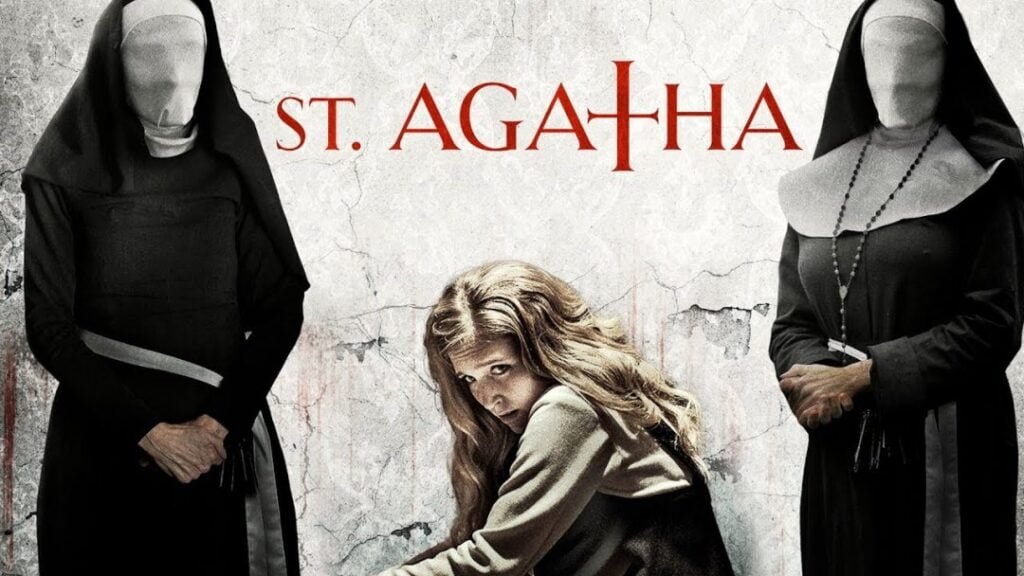
Agatha
I am an avid reader of mystery novels, but I have never been a big fan of Agatha Christie. I enjoy books that have some meat on them that involve real, live people in their crimes. Miss Christie seems to deal in cardboard caricatures from Upper Middle Class Twitland.
I realize one is supposed to snuggle up with a cold on a winter night (and there has been no shortage of those) and wrestle with Miss Christie’s languid logical puzzles while the chestnuts roast by the fire and the old hound dreams of rabbits and all that, but the fact is I get impatient with her refusal to let me know what her characters are thinking and feeling.
So it may be ironic that “Agatha,” a movie about what was so far as I know Dame Agatha’s only public display of eccentricity and passion, fails for the same reason her books do: It lacks juice and life and passion. It deals with 11 mystery days in 1926 when the novelist, upset because her husband wanted a divorce, disappeared from view and turned up at a health spa under her husband’s mistress’ name.
The official explanation for the episode was “insomnia”; the event goes unmentioned in Christie’s autobiography. But how much explanation do we need? The crisis she faced accounts neatly for everything her vanishing act, pseudonym and conduct. We might not have behaved thus ourselves, but we can understand why somebody else might have.
Kathleen Tynan couldn’t. So she wrote a mystery novel speculating on what happened during those missing 11 days (or rather, she wrote a treatment for a movie and fleshed it out into both a novel and a screenplay). We learn that Dame Agatha was acting not out of panic but with icy calculation; what she hoped to accomplish was well, better read for yourself; I won’t give it away.
Suffice it to say her scheme ranks with the poisonings, dismemberments, asphyxiations, electrocutions and live burials of the great murderers immortalized by George Orwell in his “Decline of the English Murder.” And if Kathleen Tynan and the makers of “Agatha” had worked that vein had given us a droll, macabre black comedy the movie might have jelled.
They didn’t; so it doesn’t. They posit a visiting American journalist (Dustin Hoffman) who tracks down Agatha Christie (Vanessa Redgrave); they create a cold and bitter marriage for Miss Christie, they’re very good at evoking the health spa she flees to (it’s like a hygienic sea cruise), and then they give us this strange and stilted courtship between the reporter and the novelist.
Both Redgrave and Hoffman give interesting performances: she with her height and solemnity touched this time with a little madness, as though she were a character in one of those solemn tall novels by British ladies; he very stiff, very confident, speaking as if he expects to be listened to at great distances. They live in a setting that’s a triumph of set decoration (they’re always coming and going through a forest of potted plants); it would have been almost charming when they pretend each doesn’t know the other knows there is no secret.
But nothing about their relationship is real. It is not for one moment deeply felt; it is only deeply acted. And Miss Christie’s careful catastrophe, when it comes, seems to belong in some other movie altogether maybe one with Alec Guinness on the hot seat. It is sort of doubly ironic that any film could so outrageously violate the privacy Dame Agatha guarded so ferociously and at the same time fail because it shares her inability to create living characters.
Watch Agatha For Free On Gomovies.
.jpg?w=1024&resize=1024,1024&ssl=1)
.jpg?w=1024&resize=1024,1024&ssl=1)
.jpg?w=1024&resize=1024,1024&ssl=1)
.jpg?w=1024&resize=1024,1024&ssl=1)
.webp?w=1024&resize=1024,1024&ssl=1)
.jpg?w=1024&resize=1024,1024&ssl=1)
.jpg?w=1024&resize=1024,1024&ssl=1)
.jpg?w=1024&resize=1024,1024&ssl=1)